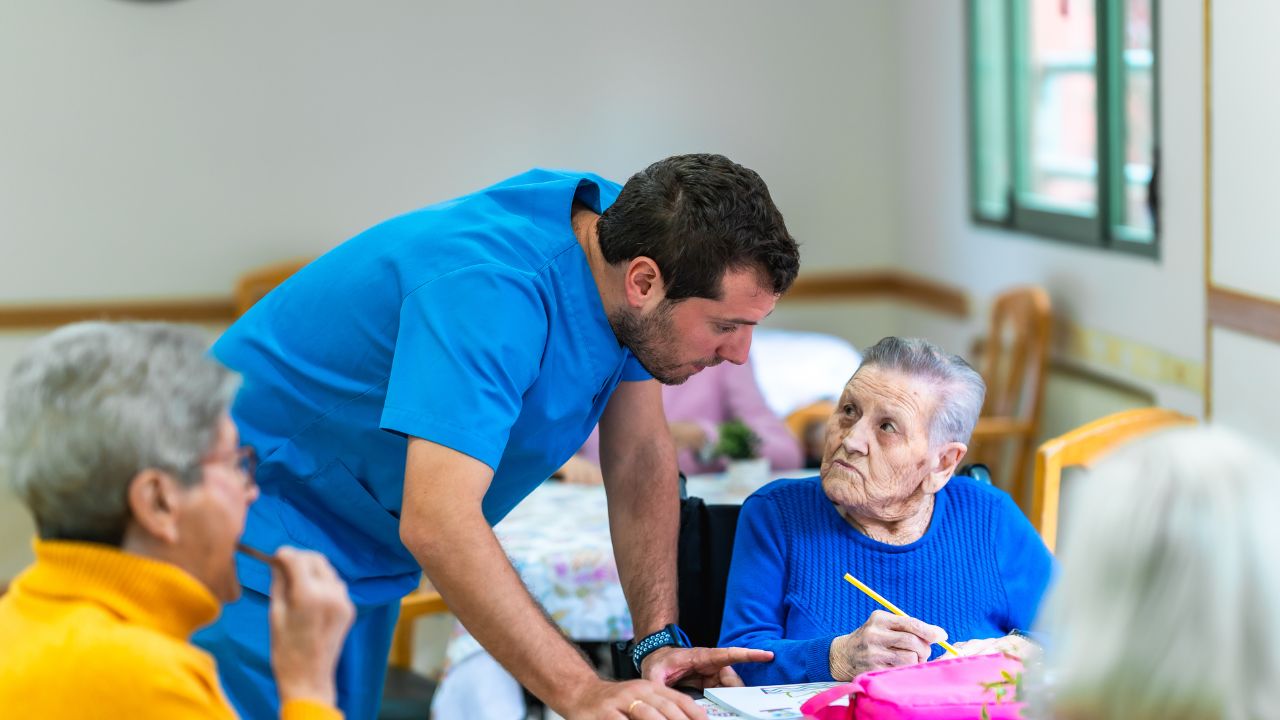Licensed practical/vocational nurses (LPNs/LVNs) are fundamental in healthcare.
Specialty certifications allow LPNs working in different healthcare settings to continue their education and advance their careers by broadening their skills and knowledge.
Why LPNs Should Pursue Specialty Certifications
LPNs who obtain a specialized certification improve their ability to provide care. This level of commitment to professional development also sets the stage for their growth as leaders.
In addition, certifications may:
- Raise their income ceiling
- Open alternate career paths
- Increase career advancement prospects
Read More: Learn about the 10 best-paying states for LPNs.
23 Certifications LPNs Can Pursue for Career Advancement
These certifications can provide LPNs with the training needed to carry out their tasks more effectively in different nursing specialties and provide high-quality care.
Before pursuing any of the following credentials, confirm the following:
- The professional certification process is valid in your state of practice.
- It is within your nursing role or scope of practice.
- You meet the certification requirements.
1. IV Therapy Certification
Many states allow LPNs to administer IV therapy. However, some states require LPNs to be IV-certified. The National Association for Practical Nurse Education and Service (NAPNES) offers IV Therapy certification. This credential is valid for three years.
2. Pharmacology
With a Pharmacology certification, LPNs can validate their knowledge of managing and administering patients’ medications. This certification is provided by the NAPNES and is valid for three years.
3. Nephrology
The Nephrology certification is no longer available for new LPNs. However, LPNs who already have the certification can recertify through the Nephrology Nursing Certification Commission.
You must renew this certification every three years.
4. Long-Term Care
The NAPNES offers the Long-Term Care certification. This credential is for LPNs who work with chronically ill and older adult patients. The certification is valid for three years.
The program reviews techniques, concepts, and skills to provide safe, quality care for geriatric and long-term care patients and support their families.
This certification replaced the NAPNES Gerontology certification to make it more comprehensive and cover a broader range of ages, not only geriatrics.
5. Urology
The Certification Board for Urologic Nurses and Associates (CBUNA) provides the Certified Urology Associate certification.
This certification verifies the knowledge required to provide support and work under a physician in a urology setting.
6. Basic Life Support (BLS)
The American Heart Association (AHA) provides the Basic Life Support (BLS) certification for healthcare professionals. This certification develops the skills needed for nurses to recognize life-threatening situations and teaches techniques such as cardiopulmonary resuscitation (CPR) to preserve life.
After finishing the course, the AHA provides a completion card that is valid for two years.
7. Developmental Disabilities
The Developmental Disabilities Nurses Association (DDNA) offers the Intellectual and Developmental Disabilities Nursing certification.
This certification endorses a nurse’s knowledge and experience in caring for patients with developmental disabilities.
8. Wound Care Certification (WCC)
The Wound Care Certification verifies the candidates’ proficiency in skin and wound care management.
This certification is offered by the National Alliance of Wound Care and Ostomy (NAWCO).
9. Certified Clinical Research Associate
The Association of Clinical Research Professionals administers the Certified Clinical Research Associate credential.
This certification is for LPNs with knowledge and experience monitoring and supervising clinical trials on behalf of sponsors, such as universities and pharmaceutical companies.
10. Certified Clinical Research Coordinator
The Certified Clinical Research Coordinator credential validates that the candidate can coordinate and facilitate clinical trials under the supervision of a principal researcher.
The Association of Clinical Research Professionals offers this certification.
11. Hospice and Palliative Care
The Hospice and Palliative Credentialing Center (HPCC) provides the Certified Hospice and Palliative Licensed Nurse (CHPLN®) certification.
This certification is for LPNs with experience caring for patients with life-limiting illnesses. Recertification is every four years.
12. Breastfeeding Counselor Certification (CBC)
Prepared Childbirth Educators provides the Breastfeeding Counselor Certification (CBC).
The CBC validates a nurse’s knowledge, skills, and experience in assisting lactating women. Credential holders must recertify every three years.
13. Certified Clinical Transplant Coordinator (CCTC)
The American Board for Transplant Certification (ABTC) administers the Certified Clinical Transplant Coordinator (CCTC) credential. The certification endorses the expertise of nurses and other professionals in organ transplantation.
The certification renewal process is every three years.
14. Registered Cardiovascular Invasive Specialist (RCIS)
Cardiovascular Credentialing International (CCI) offers the Registered Cardiovascular Invasive Specialist (RCIS) certification. It is for nurses and other healthcare professionals who work in cardiac catheterization.
The first credential renewal must be processed before the first day of the same quarter in the following year. Further renewals occur every three years.
15. Correctional Health
The National Commission on Correctional Health Care (NCCHC) offers the Certified Correctional Health Professional (CCHP) certification. This credential is valid for one year and is for professionals working in correctional facilities.
16. Pediatric Advanced Life Support (PALS)
The American Heart Association offers the Pediatric Advanced Life Support (PALS) course and provides a completion card after meeting all the requirements. The completion card is valid for two years.
This course is for all healthcare professionals who respond to emergencies and work in emergency, intensive care, and critical care units with infants and children.
17. Advanced Cardiovascular Life Support (ACLS)
The Advanced Cardiovascular Life Support (ACLS) course certifies nurses in managing cardiovascular emergencies. After completing the course requirements, the AHA provides a two-year completion card.
18. Neonatal Advanced Life Support (NALS)
The American Red Cross, in collaboration with the Association of Women’s Health, Obstetric and Neonatal Nurses (AWHONN), offers the NALS course. This course trains clinicians in neonatal resuscitation, preventing and managing neonatal asphyxia, and identifying and treating neonatal sepsis and congenital heart disease.
19. Pediatric Emergency Assessment and Stabilization (PEARS)
The AHA provides the Pediatric Emergency Assessment and Stabilization (PEARS) course. It targets clinicians and other healthcare professionals who attend pediatric emergencies such as cardiopulmonary arrest. The AHA completion card for this course is valid for two years.
20. Certified Peritoneal Dialysis Nurse (CPDN)
The Board of Nephrology Examiners Nursing and Technology (BONENT) administers the Certified Peritoneal Dialysis Nurse (CPDN) credential. This credential is for clinicians who perform peritoneal dialysis services. The examination validates a clinician’s knowledge, skills, and experience in peritoneal dialysis.
Clinicians must renew the credential every four years and pay annual certification fees.
21. Certified Hemodialysis Nurse (CHN)
The BONENT also offers the Certified Hemodialysis Nurse (CHN) certification. This certification is for nurses who care for patients with renal disease who need dialysis treatments.
The credential lasts four years. Nurses who hold the credential must pay an annual fee.
22. Certified Professional in Healthcare Quality (CPHQ)
The National Association for Healthcare Quality provides the Certified Professional in Healthcare Quality (CPHQ) certification. This certification validates a clinician’s knowledge of managing healthcare quality and safety.
Healthcare professionals must recertify every two years.
23. Certified in Infection Control (CIC)
The Certified in Infection Control (CIC) credential is for clinicians specializing in infection prevention and control. The Certification Board of Infection Control and Epidemiology (CBIC) provides the certification, and the recertification process is every five years.
Discover the difference between an RN and an LPN
Looking to Grow as an LPN? Pick Up Shifts with Nursa
LPNs have many paths to choose from in their careers. It is great to have experience and know which path fits you better. By picking up PRN shifts, you can work in different settings and have a broader scope of experiences to choose which role is right for you.
LPNs and LVNs can find PRN jobs in different settings with Nursa. Sign up to start picking up shifts in your area of interest.
Sources:








.jpg)





